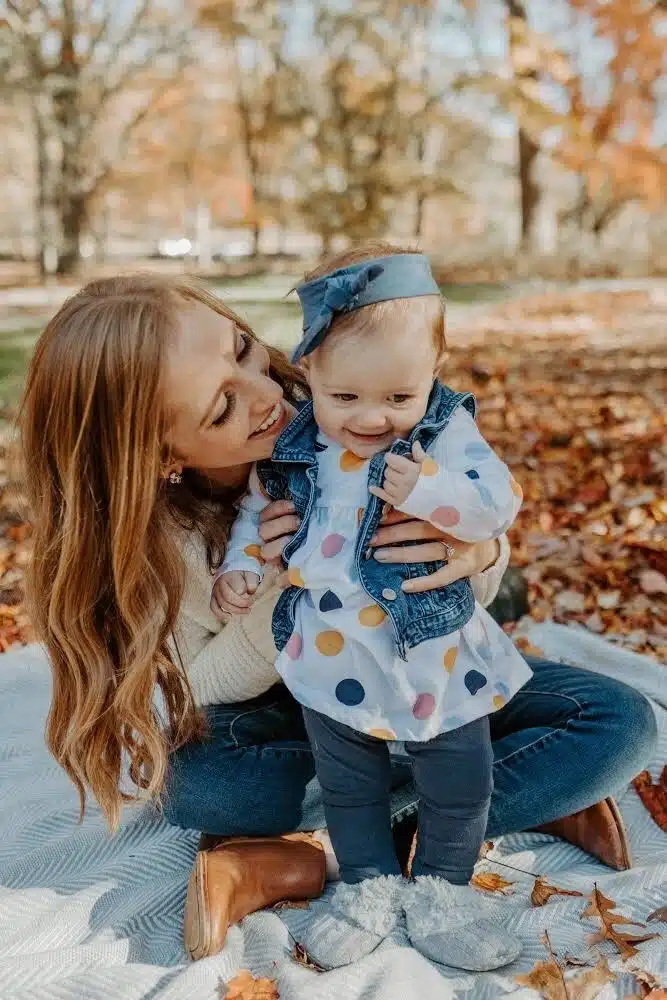PUBLISHED: 13th February 2023

by Erica Clem
When I was just 24 years old, I found myself listening to a genetics counselor as she explained the realities, risks and statistics if I were to test positive for a BRCA1 gene mutation. Because my aunt had breast cancer twice, and my family is of Ashkenazi Jewish descent, she underwent genetic testing. Her results showed that she had a BRCA1 gene mutation. Subsequent testing revealed that her children, my dad and I had the same mutation. Every woman on my father’s side of the family who had the mutation developed cancer; many of them passed away from ovarian cancer in their 30s or 40s.
Knowing that I shared my family’s genetic predisposition to cancer, I was faced with serious, life-affecting questions: Did I understand that surveillance and screenings were meant to catch cancer early rather than prevent it? Did I want to consider a double mastectomy? When should I have my ovaries removed? I wanted to have children, so for me, waiting until after I’d had kids was nonnegotiable.
My carefully planned course of action interrupted
In the following years, I navigated the complexities of my BRCA status with a genetic counselor while also undergoing a multitude of screenings. Although my world was shattered, the magnitude and reality of my situation did not fully sink in until January 2019 when my 34-year-old cousin was diagnosed with breast cancer. The night my husband and I learned of her diagnosis, we embraced on our couch and cried. My plan of having my ovaries removed in a few years when we were done having children and then dealing with my breasts suddenly felt like a death sentence. I was seven months pregnant with our first child and my anxiety spiraled. I had ticking time bombs inside of my body. My cousin’s diagnosis convinced me that I needed a different, more immediate plan of action. We needed to finish having children as soon as possible, and then my breasts and ovaries had to go.
Changing my genetic destiny
In January 2020, at the age of 32, I had a prophylactic double mastectomy. Making the decision to have bilateral salpingo-oophorectomy at such a young age was more difficult. After having my first baby, my husband and I knew we had no time to waste before having our second. As we began trying for another baby, we prayed that I wouldn’t get ovarian cancer in the meantime.
Less than a year after having my second baby, I changed my family’s BRCA narrative. I would not be one in the long line of women who died from ovarian cancer. I had a full hysterectomy and removed my uterus and cervix and a bilateral salpingo-oophorectomy to remove my ovaries and fallopian tubes. Mourning the loss of my fertility came with an array of emotions, and coming to terms with such a finite, irreversible decision was tough to process.
Confronting the Risk of Surgical Menopause
My biggest fear about removing my reproductive organs was developing surgical menopause at such a young age. Would I spiral into a deep depression without my ovaries? Would I have intense mood swings? Would I ever want to be intimate again? I faced a rollercoaster of emotions and questions for which my doctors had no answers, yet they were able to help me take preventive measures to reduce or prevent the effects of surgical menopause.
To my relief, with the help of hormone replacement, I experienced none of the symptoms of early menopause that I worried about for months. I did not spiral into a deep depression. I do not have mood swings and I am able to be intimate. I have not had any hot flashes, joint pain or the other side effects of being without natural hormones.
Confident and grateful one year later
For a long time, I felt that my BRCA gene mutation defined me. It shaped my anxiety, overshadowed my future and threatened to determine my fate. I felt not only the looming fear of cancer but also the unease about what preventive measures I would take. Now, one year after my surgeries, I feel better than ever. I reflect and feel immense gratitude that I was able to take control of my narrative instead of letting cancer write it for me.
Check out my Instagram to read more about my story and recovery tips.
POSTED IN: Stories
TAGS: Breast Cancer , Ovarian Cancer , Genetic Counseling , Genetic Testing , Prophylactic Mastectomy , BRCA1 , Risk-reducing Salpingo-oophorectomy , Mental Health , Coping With Risk